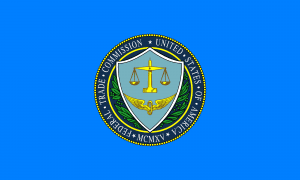The telemarketing company named in the lawsuit allegedly told customers they worked directly with major automobile manufacturers while selling loophole-ridden third-party warranties.
The Federal Trade Commission has filed a lawsuit against the American Vehicle Protection Corp. and several related entities for allegedly deceptive telemarketing practices.
According to CNN, the Florida-based Vehicle Protection Corp. is one of several companies notorious for making “dealer services” phone calls, offering consumers the chance to purchase an extended car warranty.
However, the federal government’s lawsuit suggests what many Americans already suspect: these offers are inherently dishonest, with telemarketers making false promises.
The lawsuit asserts that the American Vehicle Protection Corp.’s operators call random consumers, telling them they work with automakers such as Ford and Toyota, despite having no relationship with these companies.
“AVP blasted consumers with illegal calls and made bogus claims about bumper-to-bumper warranties,” said Samuel Levine, director of the FTC’s Bureau of Consumer Protection. “The truth is that the warranties didn’t come from the manufacturer, didn’t cover the repairs people needed, and were sold illegally.”
American Vehicle Protection operators allegedly pitched “bumper-to-bumper” and “full coverage” automobile warranties—warranties that were riddled with exceptions for various parts.

In some instances, salespeople told consumers that specific car parts were covered by their warranty, even when these parts were specifically excluded by their coverage policy.
Telemarketers were able to convince people to purchase policies by promising that they could be canceled and refunded within 30 days. But when customers tried to obtain refunds, American Vehicle Protection Corp. employees allegedly refused to answer their calls or release funds.
Some consumers were able to secure refunds only after getting help from government regulators or the Better Business Bureau.
The policies, says CNN, averaged between $2,800 and $3,400, netting the AVP close to $6 million in profits since 2018.
In its complaint, the Federal Trade Commission notes that the AVP and similar companies also harassed people on the National Do Not Call Registry, even after being informed that the phone numbers were on the list.
The Federal Trade Commission is seeking unspecified damages for consumers as well as a permanent injunction barring the companies from committing alleged fraud in the future.
Mitchell Roth, an attorney for the American Vehicle Protection Corp. and several other defendants named in the complaint, said that AVP shut down its operations after learning of the FTC’s complaints and implemented extensive policy reforms to ensure that its sales tactics comply with federal law.
Furthermore, Roth told CNN that his clients have filed their own legal complaint against the Federal Trade Commission, claiming that it has no power to seek financial relief from the defendant companies, individuals, and entities.
“AVP is committed to complying with all laws and finds it unfortunate that the Commission chose to pursue its lawsuit notwithstanding the changes that it implemented and notwithstanding the limits on its powers by Congress as described in AVP’s lawsuit,” Roth said.


Join the conversation!